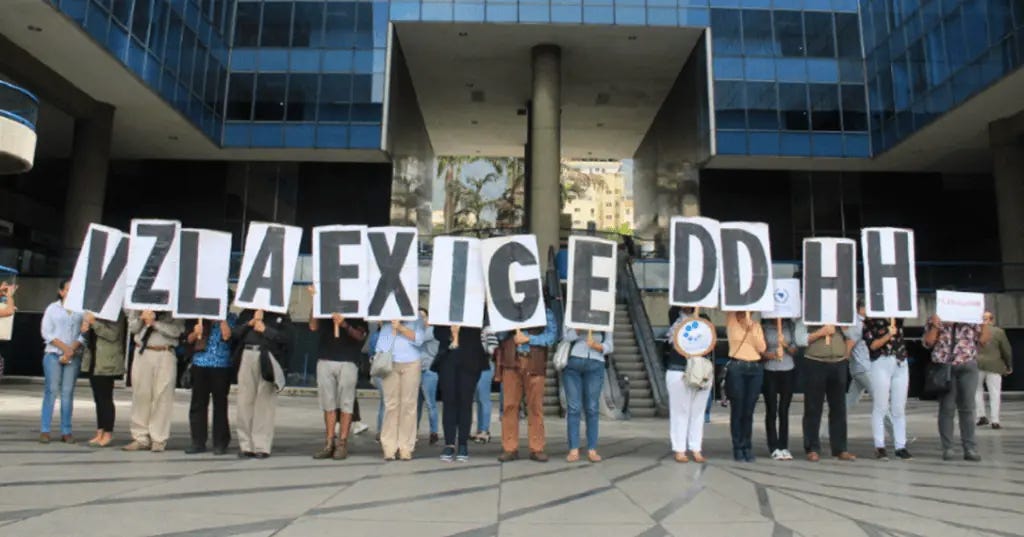What Happened Last Week in Venezuela? ❌ The Anti-NGO Law Is Back
The Anti-NGO Law is back, Citgo in the US Supreme Court and Pérez Vivas attacked.
Civil society on the way to the slaughterhouse
This Friday, the National Assembly began a “popular consultation” process for a law to supervise and control, and even close, NGOs operating in Venezuela. The bill was approved in the first discussion on January 24, 2023, but it’s being retaken up now, in an election year, by important figures of Chavismo such as Diosdado Cabello and Jorge Rodríguez. The International Fact-Finding Mission on Venezuela, established by the United Nations, has described the proposed law as “a possible point of no return in the closure of civic space.”
Rodríguez, president of the National Assembly, also proposed the appointment of a Special Commission to investigate the lawmakers of the 2015 National Assembly for “the crime of usurpation of public positions and theft of national property” and apply the Asset Forfeiture Law, which can lead to the confiscation of assets that belong to the accused opponents.
Meanwhile, former opposition candidate César Pérez Vivas was violently attacked by armed groups in Valera, Trujillo. Also, in the state of Sucre, 11 school directors were removed from their positions for not promoting the Esequibo referendum drill on November 19.
For its part, in an attempt at glasnost, the Andrés Bello Catholic University invited the minister of education to address “with transparency” the crisis in the educational sector in Venezuela and “to confront solutions jointly between the State, the private sector and the whole society.”
Paperwork in court
The Supreme Court of the United States on Monday refused to review a court ruling that authorizes the auction of shares of Citgo, a subsidiary of PDVSA in the United States, to allocate the funds to payments for claims against expropiations by Hugo Chávez and creditors against Venezuela. However, the legal battle could continue.
Meanwhile, Vente Venezuela's lawyer attended the TSJ to review the file on the alleged disqualification of María Corina Machado but was not allowed access to the case.
Recommendations
The little fuss that Gustavo Cisneros' death generated, writes John Manuel Silva for Caracas Chronicles, and the erasure of Chataing-era cultural artifacts show the extent of Chavismo's impact on our collective memory. An unmissable article.
In her article for Caracas Chronicles, Paola Bautista de Alemán warns that the crisis in Ecuador is a warning for post-Chavista Venezuela: when democracy will try to reaffirm itself in the institutions and break the coexistence with criminal groups promoted by Chavismo.
"Several other countries with both Pacific and Atlantic coastlines are either building or mulling infrastructure projects that might lure traffic and revenue away from Panama. The most viable alternatives are by land, with containers unloaded from ships onto trains or lorries at one port and carried cross-country before being reloaded" says The Economist.
CSIS explains the journey of cocaine: crops in Peru, Colombia and Bolivia; transit in Venezuela, Ecuador, the Guianas and Brazil; then the Caribbean and there to Europe. The piece also includes maps of the increase in coca cultivation in Putumayo and data on global production: 99.5% gathered in Bolivia, Peru and Colombia.
The Amazon Underworld investigation identified the presence of criminal or armed groups in 242 of 348 (69%) municipalities in the Amazon: sponsored by "the cocaine corridor", the Orinoco Mining Arc, the fragmentation of the FARC and criminal disputes in Brazil and Putumayo.




